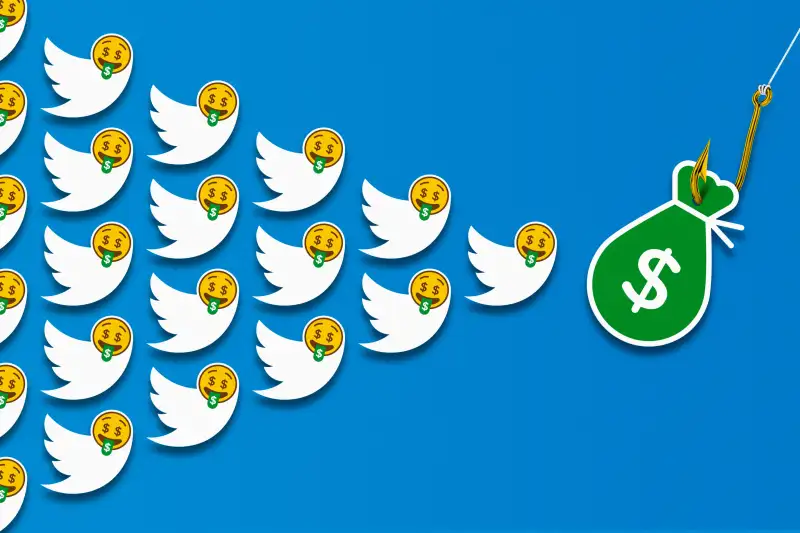Inside Cash App Friday, the Weekly Phenomenon Where People Ask for Money on Twitter (and Get it)

Late last year, Kiara Bolade earned $500 making French toast, eggs and bacon at home in her kitchen.
Scrolling through Twitter while her mom slept off a night shift in the other room, Bolade saw her timeline fill with tweets from the mobile payment service Cash App and got to work. The Evergreen State College student paused her breakfast to fire off dozens of posts in rapid succession. Every few minutes for two hours straight, she tweeted in hopes of grabbing @CashApp’s attention.
Bolade went basic — “pick meee” — and attempted reverse psychology — “i triple dog dare y’all.” She added strings of four-leaf clover emoji; she attached GIFs of the Powerpuff Girls and Tom Cruise. She cracked jokes about her desperation, admitting “im willing to spam,” then asked for sympathy, complaining about how “i never win.” Finally, she tried brutal honesty: “i want to have a fun new year’s eve help me outtt.”
That’s when the notification arrived. She’d been selected for Cash App Friday.
“I didn’t really believe it at first,” 23-year-old Bolade says. “I woke [my mom] up. I was like, ‘Uh, well, I just won $500 off of Twitter,’ and she was like, ‘Wait, what?’”
Bolade is one of the tens of thousands of young people who participate in Cash App Fridays, a social phenomenon-slash-corporate giveaway with a financial twist. Each week, Twitter and Instagram users log on en masse to fight for their share of a virtual jackpot, no entry fee or legwork needed. All they have to do is post their Cash App username and get lucky.
Cash App Friday has murky policies, long odds and security risks, but it’s evolving into way more than a promotional stunt. In a time where 40% of Americans would struggle with a surprise $400 expense, the contest is a way to pay rent, fix cars and buy diapers. Add in how ridiculously easy it is to play and win — especially for a generation on their phones constantly anyway — and it’s clear why the weekly “lottery” has gone viral.
How? Now that’s the mystery.
From Grassroots to Gimmick
For something so popular, much about Cash App Friday remains cryptic.
Ask Cash App about the contest it’s now famous for, and you’ll get radio silence. (I tried, several times, for comment — nothing.) But the secrecy goes beyond avoiding the press. There’s no Cash App Friday page to visit on the company’s website, nor are there public stats boasting about how much it’s awarded. The rules of the contest are hard to find and confusing to read. It’s unclear how winners are chosen and on what schedule. Even the contest’s origins are obscure.
What we do know is that Cash App and Twitter have always been inextricably linked. Cash App is owned by Square, the startup that lets you swipe your credit card at frilly bakeries. Twitter CEO Jack Dorsey cofounded Square in 2009 and still heads it today.
However, neither company appears to have actually started Cash App Friday. In fact, it began almost by accident.

